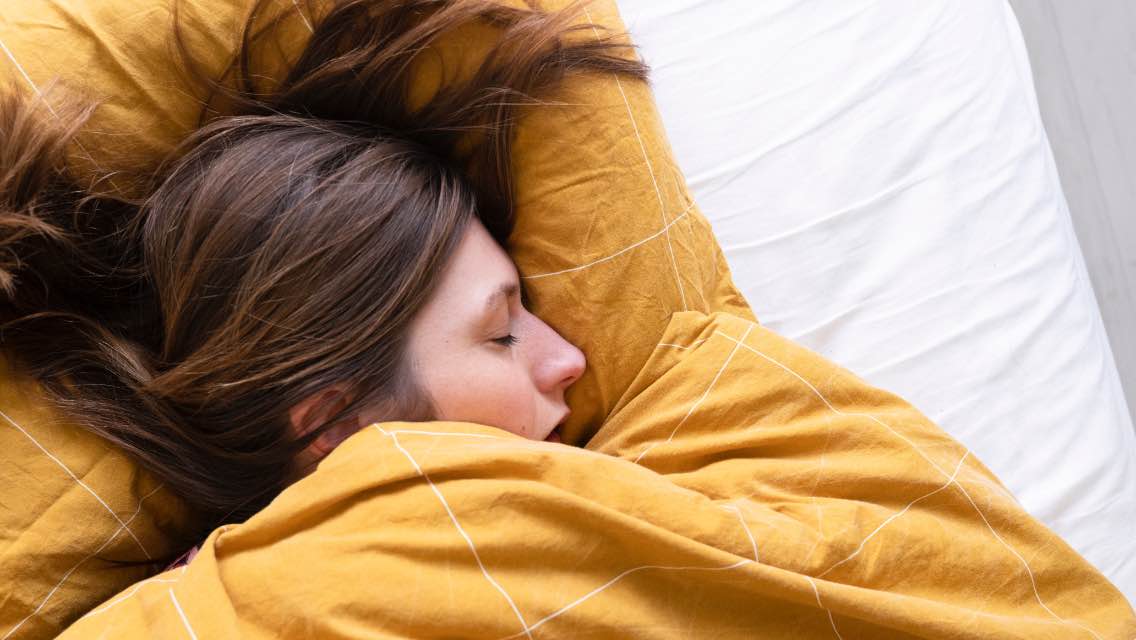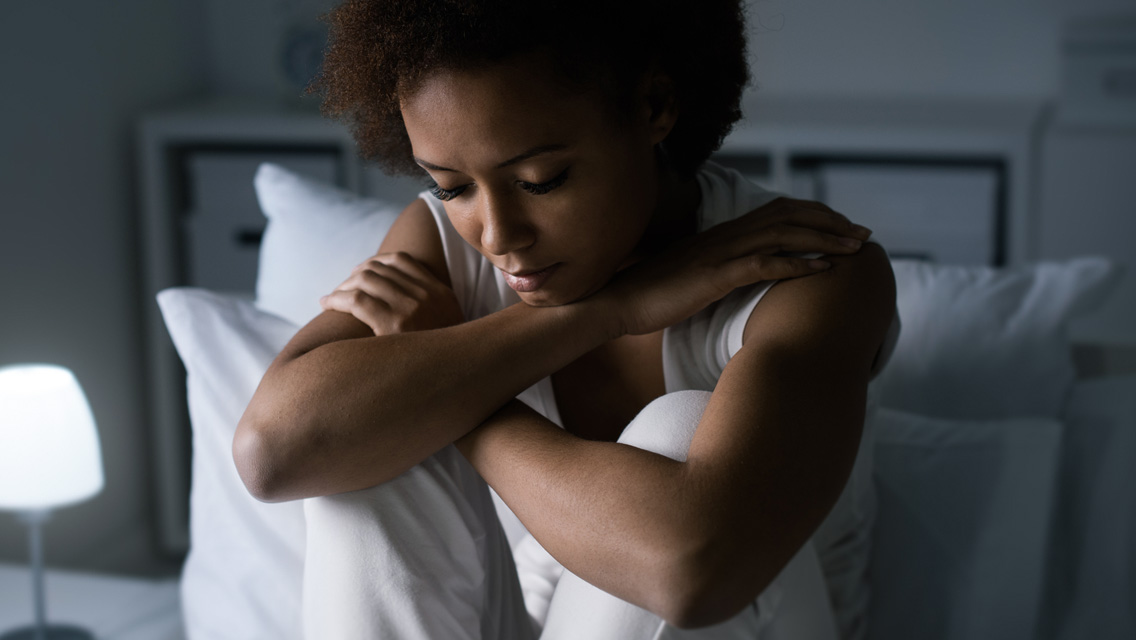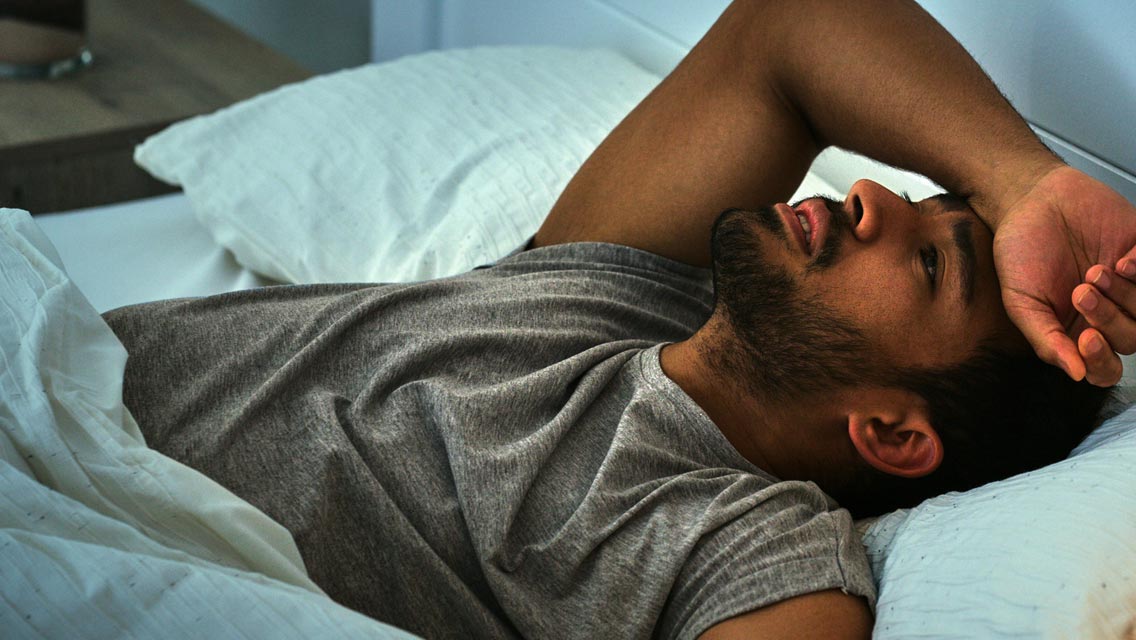
There are a multitude of factors that influence our sleep quality and patterns, making the pursuit of adequate rest at times confusing and maddening. It’s all the more frustrating when it’s elusive and starts taking a toll on our health: Insufficient sleep can result in elevated cholesterol, insulin resistance, weight gain, reduced immune function, disrupted gut bacteria, and muscle loss, to name a few effects.
“Until we talk about it, my clients often don’t realize the impact sleep deprivation has on their physical and mental performance and how it can negate all the positive behaviors they try to do during the day, such as eating right or implementing a fitness routine,” says Anika Christ, RD, CPT, director client optimization at Life Time. “Telling someone to simply ‘sleep more’ may sound easy, but often we need more strategy to actually make it happen.”
If you’re having trouble with sleep, consider these suggestions, which we’ve divided into a few key categories, depending on a few common areas of struggle.
Have never optimized your sleep environment?
Many people don’t realize the important role their bedrooms play in nurturing better-quality sleep, so one of the first things you can do to set yourself up for improved shuteye is to create a sleep-promoting environment. Consider the following recommendations.
- Turn down the lights. Light can disrupt your circadian rhythm, particularly the blue light emitted by electronics. Prior to bedtime, dim the lights and avoid electronics. “Aim to begin dimming the lights 90 minutes prior to bed,” says JD Velilla, Serta Simmons resident sleep expert and senior director of sleep experience and technology. “I also recommend using the ‘sleep’ or ‘bedtime’ functions on your phone to auto-enable features such as nighttime mode and do not disturb.” Once you shut the lights off, consider an eye mask or light-blocking shades if natural light seeps into your room. If you need a night light, consider one with a red-orange bulb.
- Lower the temperature. Many experts recommend setting your thermostat between 60 to 67 degrees F overnight to best support rest. “If lowering the heat or air conditioning to this level is not an option, turn on a fan in your room instead,” says Velilla. “Circulating the air will help cut down the humidity and give you the feeling of sleeping cooler.”
- Experiment with sound. Do you sleep better in silence? Consider ear plugs if there’s outside noise. Do you prefer some background noise? Look into trying a white or pink noise machine or app.
- Prioritize comfort. You spend about one-third of your day in bed, and you don’t want discomfort to be the cause of your tossing and turning. Invest in a high-quality mattress, pillows, and sheets. “While higher thread count sheets are better for durability, they’re less breathable,” says Velilla. “To avoid trapped body heat, look for thread counts below 400. You may also want to look for a mattress that’s specifically designed to maximize airflow.”
- Try calming scents. Lavender, for instance, can help promote calm. Try using it in an essential oil diffuser or in a spray that you can spritz on your sheets.
Find the Right Mattress
A good night’s sleep is one of the most important factors in your daily productivity, and that often doesn’t happen without a quality mattress. Consider these aspects to identify the best fit:
- Understand the role of a mattress. Getting a full night’s sleep is important for being able to recover from day-to-day tasks and stressors. Beautyrest, for instance, offers an array of cutting-edge technologies and designs to help reduce disruptions throughout the night.
- Solve common sleeping issues. Waking up with body aches and pains, being too hot or cold, or tossing and feeling restless can often be signs that you may need a new mattress. Look for one that provides personalized comfort, a premier support system, and advanced materials designed to help you maintain an ideal temperature.
- Pick your design. Mattresses come in variety of constructions. Beautyrest, for example, offers a range of options, from a traditional quilted to a hybrid mattress for combined support and comfort, with selections in between, so everyone can find their perfect fit.
- Select for you. When shopping for a mattress, keep in mind your personal areas of needed improvement, whether that’s temperature, support, or comfort. The Beautyrest line offers options that provide exclusive sleep innovations designed for concerns including airflow, individual comfort, and nightly movement.
Have a hard time falling asleep?
If you find you’re often stressed or it’s a challenge to calm your racing mind once the lights are out, try some of these recommendations.
- Engage in stress-relief techniques. What works best depends on the individual, but deep breathing, meditation, journaling, and yoga can all be helpful options.
- “End” the day. “Many of my clients go to bed with the best intentions, yet find themselves dwelling on unfinished tasks or thinking about the things they need to do tomorrow,” says Christ. Instead of running a list in your head, take five to 10 minutes to write out all your to-dos. You could also use this time to do some prep for the morning, such as setting out your workout clothes, to help minimize any friction once the alarm goes off.
- Stick to a schedule. Support your circadian rhythm by aiming to go to bed and wake up at the same time every single day — including the weekends (varying by 30 minutes or so is OK). Maintaining a regular bedtime routine can also help condition your body to know it’s time for rest. “Most adults have an alarm clock to wake them up. Setting an alarm to go to bed is just as important,” says Christ.
- Move during the day. Consistent exercise can help regulate your circadian rhythm, as well as support evening melatonin levels and reduce cortisol.
- Develop an evening sleep ritual. Dim the lights, lower the temperature, and put away electronics an hour or so prior to bedtime. Use this time to do something relaxing, such as taking a hot bath, drinking a cup of herbal tea, or reading. “Many of us are extremely structured during the daytime, but at night we tend to fly by the seat of our pants,” says Christ. “Routines are helpful because they create consistency and habits.”
Have trouble staying asleep?
Sleep and other daily health habits are closely interconnected. Consider these behavior modifications if you tend to wake up in the middle of the night.
- Watch your caffeine intake. As a general rule, refrain from drinking caffeine at least six hours prior to bedtime. It’s also beneficial to pay attention to how caffeine impacts you individually. Research shows that our genes can play a role in how we metabolize caffeine, so notice how you feel — physically and emotionally — when drink caffeinated beverages: Do you sleep better when you cut it off earlier? Are you more restful if you reduce your consumption?
- Refrain from using alcohol to fall asleep. You may initially drift off faster after having a drink or, but the quality of your sleep will suffer and it’s more likely that you’ll wake up more frequently during the night.
- Keep your blood sugar balanced. “A single night of shortened sleep decreases one’s ability to manage blood-sugar levels and increases carbohydrate cravings,” says Christ. Throughout the day, consume well-balanced meals that consist of high-quality protein, fiber, and healthy fats to give yourself a steady stream of energy. This helps prevent your blood sugar from spiking and dropping during the night, which can cause you to wake up. Processed and added-sugar foods are best avoided in the evenings as they can increase your blood sugar and can suppress melatonin.
- Work out earlier in the day. Exercise can spike your core body temperature, which is counterproductive to our sleep efforts. “The wake-sleep cycle can be characterized as a transition from warm to cold. Bedtime is the only time in the day when our core temperature purposefully drops,” says Velilla. “Ideally, aim to complete your workout two hours prior to rest.”
- Don’t delay dinnertime. It can take your body anywhere from two to five hours to empty your stomach after a meal; this can take even longer if you’re sleeping during this process. To prevent the digestive process from contributing to poor-quality sleep, avoid eating at least two hours before bed.



